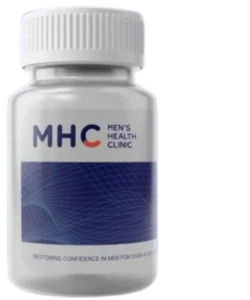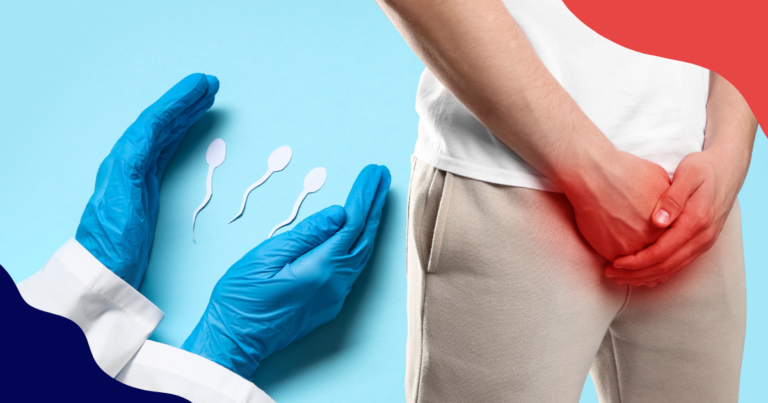RESTORING CONFIDENCE SINCE 2012
The #1 Men’s Health Clinic in Australia.
MHC Men’s Health Clinic provides quality, custom treatments for Erectile Dysfunction (ED), Premature Ejaculation (PE), Testosterone Deficiency (TD), and Chronic Pain.
Check your condition with a free online assessment.
Men Helped
Licensed Medical Professionals
Potentially Rehabilitative
Discreet Shipping
RESTORING CONFIDENCE SINCE 2012
The #1 Men’s Health Clinic in Australia.
MHC Men’s Health Clinic provides quality, custom treatments for Erectile Dysfunction (ED), Premature Ejaculation (PE), Testosterone Deficiency (TD), and Chronic Pain.
Check your condition with a free online assessment.
Men Helped
Licensed Medical Professionals
Potentially Rehabilitative
Discreet Shipping
The #1 Men’s Health Clinic in Australia
Get a free online assessment to measure the severity of your condition.
- Licensed medical professionals
- 155,000+ men helped
- Discreet shipping and care
RESTORING CONFIDENCE SINCE 2012
The #1 Men’s Health Clinic in Australia.
MHC Men’s Health Clinic provides quality, custom treatments for Erectile Dysfunction (ED), Premature Ejaculation (PE), Testosterone Deficiency (TD), and Chronic Pain.
Check your condition with a free online assessment.
Why Choose MHC?
Discreet Shipping
Potentially Rehabilitative
Licensed Medical Professionals
Restoring Confidence for Over a Decade!
MHC has been at the forefront of male health care since 2012 and has since become the leaders in men’s health globally. We offer advanced, low-cost treatment plans accessible from the privacy of your home or office.
We remain accountable every step of the way throughout each individual’s journey, providing patients with a personal MHC Performance Manager whose sole responsibility is to support you throughout your recovery. This includes providing access to other related licensed health professionals such as sex therapists, psychologists, physiotherapists, and nutritionists who work tirelessly together to support your overall well-being and remain laser-focused ultimately on rehabilitation.
- Restore Confidence
- Reclaim Manhood
- Improve Quality of Life
Dr. Fred Edwards is a qualified GP and has over 30+ years of experience. He aims to widen the scope of treatment within MHC to include general issues to help men.
Discover how MHC has been helping men overcome erectile dysfunction, premature ejaculation, and low libido with cutting-edge, personalised treatments, which have already helped over 155,000+ men worldwide.












Effective Erectile Dysfunction Treatment in Australia
Erectile dysfunction can be momentary or circumstantial: a brief problem getting an erection is quite normal and is typically nothing to worry about. However, sustained difficulty getting or maintaining an erection, persistent challenges in keeping an erection of sufficient quality to enjoy sex, or the complete inability to produce an erection could be a sign of something more serious. If you have experienced any of these symptoms, you may be suffering from erectile dysfunction (ED).
As one of our commitments to you, all treatments are carried out using the latest medical advances supported by personal attention. Our professional team in health is ready to enable you to regain control and get your life back on track, whether you want a permanent solution or are searching for immediate relief.
Find the Best Options in Erectile Dysfunction Medication in Australia and Start a Journey Back to Good Health Today.
Comprehensive Care for Premature Ejaculation in Australia
Premature ejaculation is defined as a male orgasm that occurs before the desired time. “Too early” (less than a minute) usually means before a completely satisfying sexual encounter has concluded. The typical outcome is embarrassment or anxiety for the sufferer and lack of satisfaction for the partner. “Too early” varies from couple to couple.
Our experienced healthcare team will then develop, with you, a tailor-made treatment plan in order to meet the special and unique requirements of whether you require immediate results or improvement over time. Our premature ejaculation treatment in Australia is focused on combining the latest medical techniques with expert care to deliver the best outcomes. Get the most effective treatment options at MHC and take the first step to a reinvigorated, active sex life—free from the disruption caused by PE.
Successfully Restoring Libido in Australia
Testosterone Deficiency is sometimes called andropause, male menopause, or even the funny term “man-opause.” Even though it sounds like a joke, it’s a serious issue for those who have it. TD can affect important aspects of a man’s life like their energy, drive, and interest in activities they enjoy.
Expert Chronic Pain Management in Australia
Chronic pain is commonly known to cause a variety of sexual health issues, such as erectile dysfunction, premature ejaculation, and low libido, which negatively impact daily life. MHC works closely with their partner company, Pain Clinic Australia (PCA) to offer a holistic approach, providing latest cutting-edge therapies designed to repair your sexual health and improve your wellbeing.
View our wide range of treatments to improve your Sexual Health.
Erectile Dysfunction
We provide effective treatments designed to eliminate problems with erectile dysfunction, helping you return to peak performance.


Premature Ejaculation
The treatments we prescribe for PE are extremely effective. We remain focused on creating an outcome in which our patients no longer require medication, and they can enjoy a happier, healthier sex life.


Testosterone Deficiency


Chronic Pain
Our licensed medical team will establish the root cause of the pain so it can be treated successfully with pinpointed specific focus.


Getting treated is fast and easy via MHC's telehealth services!
Assessment
Our medical team will carefully review your health profile and provide you with appropriate options.
Doctor Consultation
Our licensed Australian doctors will create a customised treatment plan specifically for your unique health profile.
Discreet Delivery
Your treatment will be tracked and promptly delivered to your home or office in plain packaging to ensure privacy and discretion.
Ongoing Support
Your Personal Performance Manager will monitor your progress monthly and provide you with the highest level of care.
Men should conduct their own due diligence by reading Google and TrustPilot reviews in the first instance. Reviews provide a genuine indicator of the authenticity of the clinic and whether it has truly stood the test of time with its patients.
Read MHC reviews and see what our patients have to say.
Staff have been very professional and helpful with every step of my process. It has helped so far.
Thank goodness for The Men’s Health Clinic. Having experienced the growing frustration of ED for several years and believing my younger self of pleasurable sexual activity was over I now feel alive again. Since my initial contact with MHC they have been so supportive, professional, dedicated and discreet. The prescription program their medical team has devised for me and their ongoing support has made a major impact on my sexual health. My confidence has increased as has my performance. While still being “work-in-progress”, I have gone from a 2 out of 10 to 7 out of 10. I am still only half way through my treatment therapy and feel positive about my future.
I would throughly recommend MHC to anyone experiencing ED or PE symptoms.
I researched numerous studies and sites seeking help without any success until I found and rang MHC. Immediately I felt comfortable with my initial consultation and the pathway outlined for me. 🥇🥇🥇
I can’t thank or praise the staff at Men’s Health Clinic enough for their continued support and dedication to the job they do.
I would, and have, recommended them to any man who is struggling with any health issues.
They are very professional, discreet, and supportive throughout the entire experience, and they follow up on how your treatment is going on a regular basis.
So far, I’m a few months into my treatment and I’ve seen a good amount of progress. I would definitely recommend any man with issues to jump onto the program.
I’ve been on the Men’s Health Clinic program for several years now for both erectile dysfunction and premature ejaculation. I have had excellent results from the medications prescribed. It has improved both areas and has been a huge boost to my confidence, performance, and enjoyment. The team at MHC have always been professional and helpful. I happily recommend the program.
The program worked really well… I’m able to last a much longer time in the bedroom which gives me so much more confidence when I’m meeting new people that I might go all the way with.
My experience with the Men’s Health Clinic has been nothing but a positive one. Paul Ford has always been very helpful with making sure my medications are always delivered to me in advance and monitors my progress with concern and attentiveness. Paul is also very helpful with offering sound advice. I’m really glad Paul Ford is my progress performance manager.
Working with **Men’s Health Clinic** was an easy process. The team were very supportive and offered some great advice, with outstanding results. Thank you, MHC.
Meet Our Global Team of Experts

Dr. Thomas Stock
Dr. Thomas Stock has gained extensive experience in Men’s Health through his career. He recognises the effect ED and PE can have on the male psyche, bringing both his knowledge and expertise to MHC providing patient centered care.

Dr. Suren Naidoo
As a private GP and Aesthetic Practitioner, Dr. Suren Naidoo practices medicine with a holistic approach by listening and dedicating the best possible care to his patients.

Dr. Marcus Kramer
Dr. Marcus Kramer graduated from Auckland University in 1995 and has worked as a physician for the last 27 years mainly focused as a Senior Medical Officer in Emergency Medicine in New Zealand (2002-2008, 2020-2021) and as a Hospitalist in Qatar (2008-2019). Since 2021 he has been working as a Medical Contractor for Men’s Health Clinic New Zealand with an interest in Men’s Health and Telemedicine.

Dr. Asem Said Kaber
Dr. Asem Said Kaber is a family physician based in Edmonton, Alberta. He received his Bachelor of Medicine, and Bachelor of Surgery degree from Libya in 2005. He is the medical director of Eastwood Medical Clinic. He is committed to helping you get better and live a better life.

Dr. Fred Edwards
Dr. Fred Edwards is a qualified GP and has over 30+ years’ experience. He aims to widen the scope of treatment within MHC to include general health issues to help men.

Dr. Nick Travers
Dr. Nick Travers is a GP who completed industry leading training in the United Kingdom. Dr. Travers has a special interest in male Sexual Health with a focus on improving male mental health.

Dr. Jonathan Herald
Voted as Australia’s Best Doctor in orthopaedics on the internationally doctor-rated Best Doctor website; Dr Herald has 20 years’ surgical experience and has a passion for helping patients with their Chronic Pain management.

Marie-Eve Bernat
Marie-Eve Bernat, graduated from the University of Montreal in Family Medicine in 2003. She has since practiced in different provinces across Canada, before settling in Saskatchewan. Dr. Bernat is dedicated to provide compassionate and quality patient care.

Meredith Amundsen
Accredited in Nutritional Science, Meredith inspires patients to become, happier and healthier versions of themselves. Meredith works closely with MHC patients to provide a one-of-a-kind approach to restoring confidence.

Jan Macfarlane
Jan Macfarlane is an Accredited Clinical Nutritionist specialising in functional testing. Jan firmly believes that a healthy lifestyle is the first step to a more energetic and fuller life.

Aayu Mehmi
Aayu Mehmi is a qualified Psychologist, having completed her Bachelor’s Degree in Psychology with a further Master’s Degree in Counseling at Monash University. Aayu is a licensed Mental Health Counselor with PACFA and is passionate in helping treat patients suffering in Chronic Pain.

Lara Abu-Zarour
Accredited Practising Dietitian and a member of Dietitians Australia, Lara has a passion for helping individuals; educating patients on how powerful nutrition and living a healthy lifestyle is when preventing acute and chronic conditions.

Nicole Brewer
A passionate sex and relationship counsellor with a goal of making her patients reach their potential inside and outside of the bedroom. Nic creates a supportive, non-judgmental space, her clients gain deeper understanding and empowerment to have the results they want.

Kristen Anderson, MA
Kristen is a therapeutic coach who empowers men to live long and healthier lives through connection, vitality, and virility. She is also a certified sex educator and intimacy coach who strives to create a safe and welcoming space for her clients to connect more deeply with themselves and their relationships. Kristen has a rich background in sports and mindfulness that she blends into her work with her clients. When she’s not working, she enjoys running, cycling, golfing and spending time with her three boys.

Andie Flynn
Andie is a licensed Nutritionist and Clinical Dietitian with years of practicing experience. She is passionate in getting to know the patients’ and their dietary and lifestyle choices. Andie is dedicated in providing each patient an individualised treatment program.

Belle Woods
Belle is an experienced clinical dietitian with nearly two decades of expertise in diverse areas, including metabolic disorders, lung diseases, and chronic pain management.

Marc Ellis
Marc is a passionate and dedicated Registered Nutritionist-Dietitian with expertise in creating personalized nutrition plans to optimized health and well-being. As a trusted nutrition professional, he is dedicated to helping individuals make informed choices about their nutrition and lifestyle.

John Davies
John Davies, an experienced Licensed Nutritionist and Clinical Dietitian, specializes in nutrition therapy, counseling, and personalized diet plans. With seven years of experience and advanced degrees in Nutrition and Clinical Nutrition, John also delivers lectures on medical nutrition therapy. His approach blends scientific knowledge with empathy to provide evidence-based recommendations for his clients.

Pauline Hall
As a licensed Nutritionist Dietitian for 6 years, Pauline specializes in weight management and lifestyle diseases such as diabetes and hypertension. My expertise lies in providing tailored nutritional guidance to help individuals achieve their health goals and manage chronic conditions effectively.

Troy Wallace
Troy completed his Bachelor of Applied Science in Physiotherapy at the University of Sydney in 2011. Troy has extensive treatment experience, specialising in shoulder, knee, lower back and neck injuries. He was the Physiotherapist for Manly Sea Eagles U16/18 rugby league teams in 2012-2013. Troy also enjoys the challenge of combining his Physio knowledge and experience in both playing golf and competing as an amateur boxer to optimise performance in these individuals.

Dr. Vahid Mohabbati
“The art of medicine is to cure sometimes, to relieve often, to comfort always.” I believe medicine is an art and comfort and hope should be offered to every patient, in every encounter. One must never lose sight of the power we have in changing our patients’ perceptions and expectations of their diseases. While cure may not often be achievable, but relief is always possible. The art is to tailor a host of available options to fit one’s needs.
MHC has remained The Trusted Choice for ED, PE, TD, and Chronic Pain since 2012
While there have been many clinics that come and go over the years, MHC has proudly been the longest-standing and trusted clinical choice for a very long time, with medical team members that have been with us since the business began in 2012. Patients tell us they feel extremely comforted by this because they are in expert hands and will only receive care from licensed medical professionals with extensive experience in prescribing MHC’s customised, multidisciplinary treatments.
Not sure which condition you may have? Take one of our assessments!
Erectile Dysfunction
Premature Ejaculation
Chronic Pain
Frequently Asked Questions
Do you have any enquiries about our services? Below, we have provided answers to some of the most common queries to help you better understand our treatment options and what to anticipate during your care.
How will Men's Health Clinic help me?
What are the symptoms of Erectile Dysfunction?
The symptoms of Erectile Dysfunction may include difficulty achieving or maintaining an erection, reduced sexual desire, and experiencing challenges in achieving satisfactory sexual performance. If you’re experiencing any of these, consult with a healthcare professional for a proper diagnosis.
What should I do if I am having PE or ED issues?
If you suspect you have sexual dysfunction, please start with an online symptom checker. Take these results with you to your doctors appointment so that a cause can be identified. Once the cause is identified, there are several treatment options to choose.
What are the symptoms of Premature Ejaculation?
If you are unable to engage in intercourse that is satisfying for yourself and your partner that lasts more than 1-2 minutes prior to orgasm, you have a problem with Premature Ejaculation (PE).
How does Men's Health Clinic differ from other clinics?
We are Australia’s leading national clinic providing completely bespoke and managed treatment solutions for men suffering from premature ejaculation and erectile dysfunction. Every male is different. Our custom treatment differs with each person in order to ensure the best chance at recovery with minimal side effects. Our Patient Performance Managers (PPM’s) assess your results monthly to ensure you are achieving the highest level of sexual performance. To re-ignite your love life schedule a FREE consultation with the Australia Men’s Health Clinic.
What are the symptoms of Chronic Pain?
Symptoms of chronic pain typically take shape in the form of mild to very bad pain that persists for a period of 3 months and longer. The affected area may also feel sore, stiff and tight. Shooting, burning, stinging, throbbing, aching pain are common symptoms of chronic pain.
How can I treat my medical concern?
Once you’ve received your diagnosis, our pharmacy team will ship your prescriptions directly to your front door in discreet packaging. Learn more about how Men’s Health Clinic can help you regain your confidence and start enjoying sex again.
Got a different question?
Latest Resources & Blogs
Explore our latest resources and blogs to stay informed about the newest developments in men’s health. From expert advice to in-depth articles, you’ll find valuable insights to help you navigate your health journey.

- Erectile Dysfunction, Premature Ejaculation







